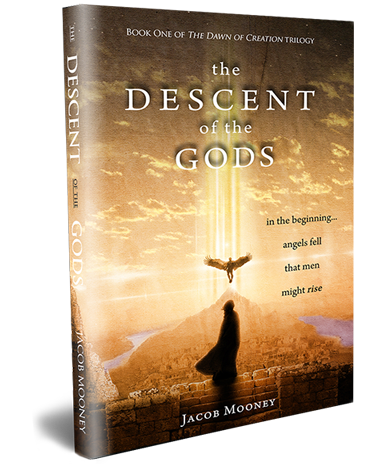If you have done any research about the Nephilim, you’ve probably already come across Dr. Michael Heiser.
He’s well known for his research, blog, podcast and books both investigating and debunking topics that most researchers and Bible scholars tend to avoid.
Here are just a few things Dr. Heiser has to say about the ‘Sons of God’ and the Nephilim.
Dr. Michael Heiser on Genesis 6:1-4
…the sons of god are supernatural beings. They are not people. That’s probably the shortest way to answer that…
They were members of the heavenly host who transgressed you know the boundaries of heaven and earth with disastrous effects.
We we tend to fixate on the on the weird Nephilim stuff but in in second temple theology and this includes the new testament the real damage of Genesis 6 was the proliferation of human depravity not the weird nephilim stuff.
Dr. Michael Heiser
Any human interpretation of the sons of God in Genesis 6 is ignoring or is ignorant of the original context for those verses; for Genesis 6:1-5.
And that context is Mesopotamian religion, specifically, the Apkallu story…
The Sethine interpretation; this is the idea that the sons of God are the line of Seth, and the sons of God are just human. And so somehow that means the ungodly element are the women of Cain.
The text never says that, it never says any of that. It never makes these identifications.
So, the sons of God, those are the believers, right? Are they only men? You only have male believers before the flood? And only male believers from one lineage? Like really? The sinners, they are the women, right? The men of Seth are good and all the sinners are from the other line of Cain.
Again, the text never says any of this. This is a contrived, invented view to distance from the supernatural element of Genesis 6.
Someone go back to the third century with Africanus... He was the first one to sort of depart from a supernatural interpretation.
In terms of you know, church thinkers, Augustine was the big one who departed from this view. And since he was so weighty as a theologian, his view carries to today.
He had an axe to grind. When he became a Christian, he hooked up with a sect called the Manicheans. Had a parting of ways with them – they revered The Book of Enoch.
So, you know, Augustine sort of just turned against all that. That, you know, was part of what was going on here in his head to get away from the supernatural view of Genesis 6.
But up until that point, for centuries, this was a no brainer. And my argument is that it is a no brainer, it’s a no brainer if you understand the original context, and you observe that the people in the ancient world actually did know, they knew that ancient context and interpreted accordingly, and this includes the biblical writers.
…Ultimately, if these are just people, it cannot account for the Nephilim in Genesis 6:4. If there’s nothing unusual going on here, how do we get Nephilim?
Dr. Michael Heiser
Videos
More information
We’re only scratching the surface. Dr. Heiser has many resources about the Nephilim, some of which are listed below.
- drmsh.com – Dr. Heiser’s Website
- Who are the Nephilim and What is their Origin? logos.com
- On the Morphology of the Word ‘Nephilim’







